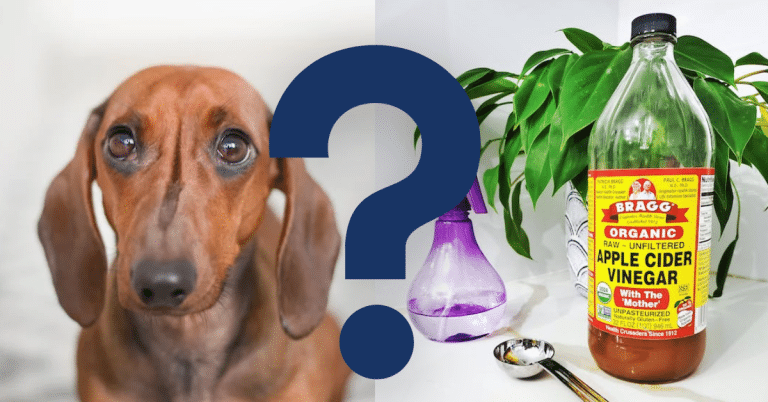Can dogs eat almond nuts? A Vet’s Opinion

Almond nuts are a type of nut that is typically eaten as a snack or ingredient. They are produced from the fruit of the almond tree. But can you feed almond nuts to your dog?
Almond nuts should not be fed to dogs. Due to their high-fat content, almond nuts can be challenging for dogs to digest and may result in nausea, vomiting, or diarrhea. Almond nuts may also cause pancreatitis and offer a choking hazard. Sticking to dog-friendly treats and refraining from feeding your dog human items like almond nuts is safer. Always consult your veterinarian before adding new items to your dog’s diet.
Benefits of almond nuts for dogs
Given their potential hazards and modest advantages, almond nuts are not advised for dogs. Even though they contain some nutrients that might be advantageous, the hazards outweigh the benefits. Almond nuts contain a lot of fat, which can cause weight gain and digestive problems in dogs. Their fat content may also cause pancreatitis, a potentially severe pancreatic inflammation. Almond nuts’ firm texture can also make them difficult for dogs to digest, which could lead to stomach pain, vomiting, or diarrhea. In addition, almond nuts contain cyanogenic glycosides, a substance that, when consumed, can emit cyanide. Even a modest amount of almond nuts can be dangerous to dogs, even when the amounts are not very high.
Almond nuts may contain fiber and protein. However, these nutrients can also be found in a dog’s diet from safer sources. Many dog-friendly snacks and meals are specially created to deliver the ideal nutrient balance without the dangers of almond nuts. It’s best to choose snacks specifically made for dogs to consume if you want to give your dog a healthy and nourishing snack. Small cooked bits of lean meat, fruits like apples (without seeds or cores), carrots, or commercial dog treats endorsed by vets are also acceptable substitutes. In conclusion, the potential hazards substantially outweigh any apparent benefits of giving almond nuts to dogs. Stick to foods specifically made for dogs and check your veterinarian before introducing new foods to your pet’s diet to maintain their health.

How to safely give almond nuts to dogs
Almond nuts are not advised for dogs due to potential hazards in their eating; it is vital to mention. Here are some suggestions to take into account if you decide to continue researching this subject:
Consult Your Veterinarian
You must speak with your veterinarian before adding new food, including almond nuts, to your dog’s diet. Depending on your dog’s nutritional demands and medical conditions, they can offer tailored guidance.
Select Unsalted And Flavourless Almond Nuts
If your veterinarian gives the go-ahead, select unsalted and flavorless almond nuts. Almond nuts with flavors or salt may also have other elements that could be dangerous for dogs.
Offer Just A Tiny Bit
If your vet gives the all-clear, give your pet a tiny bit of a plain, unsalted almond. Only offer your dog a small quantity or amount of food because even a few almond nuts can upset their stomach.
Crush The Almond Nuts
Almond nuts should be crushed or chopped because of how hard they are to chew and digest for dogs. To reduce the risk of choking or digestive issues, crush or cut almond nuts into tiny pieces if you decide to give them.
Watch For Reactions
Watch for any negative responses after giving your dog a small piece of almond. Watch for behavioral changes, vomiting, diarrhea, or signs of an upset stomach.
Consider Safer Substitutes
Instead of almond nuts, take into account established dog-friendly, safer substitutes. Small bits of cooked lean meats, such as chicken or turkey, as well as dog-friendly fruits and vegetables, such as apples (without the seeds or core), are included in this category.
Avoid Other Nuts
Dogs should not consume other nuts, including almond nuts. Pecans, walnuts, and macadamia nuts should not be consumed since they may be dangerous.
Monitor For Cyanide Poisoning.
Almond nuts contain cyanogenic glycosides, which, when consumed, can produce cyanide; thus, be aware of the symptoms of cyanide poisoning. Recognize the signs of cyanide poisoning, including drowsiness, bright red gums, and difficulty breathing. If you see any of these signs, get veterinarian help right once.
In conclusion, it is better to prioritize your dog’s safety and well-being by avoiding almond nuts. Instead, concentrate on feeding your animal companion a nutritious meal that is well-balanced and appropriate. Before making any dietary modifications or introducing new foods to your dog, consult a veterinarian.
Will almond nuts make a dog sick?
Due to their high-fat content, harsh texture, and cyanogenic glycosides, almond nuts may ill dogs. Almond nuts could bring on the following illnesses in dogs:
Gastrointestinal Upset
Due to the high-fat content of almond nuts, dogs may experience digestive distress, vomiting, diarrhea, and discomfort. They may be uncomfortable to digest due to their rough texture and difficulty chewing.
Pancreatitis
Almond nuts’ high-fat content raises the possibility of developing pancreatitis, an inflammation of the pancreas. Lethargy, loss of appetite, vomiting, and abdominal discomfort are all possible signs of pancreatitis.
Choking Risk
Almond nuts’ firm texture can be dangerous for choking, especially if not eaten thoroughly. Breathing issues brought on by choking necessitate prompt medical intervention.
Cyanide Poisoning
When consumed, almond nuts contain cyanogenic glycosides, which can produce cyanide. While almond nuts are very modest, even a tiny amount could lead to cyanide poisoning. Breathing difficulties, bright red gums, and weakness are all possible symptoms.
Allergies
Dogs can acquire allergies to particular foods, including almond nuts. Allergic responses might cause skin rashes, itching, hives, or gastrointestinal problems.
Obesity
Almond nuts’ high-calorie content can contribute to dog weight gain if ingested regularly. Obesity can cause various health concerns, including joint pain, diabetes, and heart disease.
Gastrointestinal Blockages
Almond nuts’ hardness increases the risk of gastrointestinal blockages if big chunks are consumed. Blockages can be fatal and necessitate medical intervention.
Dental Problems
Chewing on hard foods such as almond nuts can lead to dental problems such as cracked or broken teeth.
Given these potential hazards and few advantages, it is strongly advised that dogs not be given almond nuts at all. Consult your veterinarian immediately if you suspect your dog has eaten nuts or other potentially dangerous food. Stick to canine-specific treats for safe and acceptable rewards, and consult your vet before introducing new foods to your dog’s diet.

Can Dogs Eat Almond Variations?
Dogs should avoid all almond varieties, including flavored, salted, roasted, and others. Almond nuts’ potential dangers, such as their high-fat content, hard texture, and cyanogenic glycosides, apply to all almond nuts. Here’s why different almond varieties aren’t suitable for dogs:
Flavored Almond Nuts
Flavored almond nuts frequently contain elements detrimental to dogs, such as seasonings, spices, or artificial flavorings. These substances have the potential to produce gastric distress or even severe reactions.
Salted Almond Nuts
Salted almond nuts are heavy in sodium, which is unsuitable for dogs in large quantities. Excess sodium consumption can cause dehydration, electrolyte imbalances, and other health problems.
Roasted Almond Nuts
Due to the changing texture and increased oil content from the roasting process, roasted almond nuts may be more difficult for dogs to digest. The possibility of stomach problems remains.
Sweetened Almond Nuts
Sweetened almond nuts are often covered with sugar or other sweeteners that dogs should avoid. Sugar consumption can result in obesity, tooth problems, and other health issues.
Almond Butter
Although almond butter is a different type of almond, it still bears the hazards associated with almond nuts. It’s high in fat and calories, and some nut butter may have ingredients that are hazardous to dogs, such as sugar, salt, or artificial sweeteners.
Given the potential hazards and lack of significant advantages, it’s better to avoid feeding almond nuts to dogs in any form, including variants.
Vet’s Summary
Due to the potential hazards, almond nuts and their variations are not suggested for dogs. Almond nuts have a high-fat content, a rough texture that can be difficult to digest, and cyanogenic glycosides emit cyanide when consumed. These factors can cause digestive discomfort, pancreatitis, choking hazards, cyanide poisoning, allergic reactions, obesity, gastrointestinal blockages, and dental difficulties. The article strongly cautions against feeding almond nuts to dogs in any form and suggests visiting a veterinarian before introducing new foods into a dog’s diet.
Probiotic Supplement Recommendation: Given the potential hazards of feeding dogs almond nuts, owners must prioritize their dog’s health and well-being. Regarding nutritional supplements, probiotics may be a safer and more effective option. Probiotic pills can help a dog’s digestive health by supporting healthy gut flora, assisting with nutrient absorption, and boosting the immune system. However, before beginning any supplements plan, it is critical to speak with a veterinarian. A veterinarian may assess your dog’s particular needs, offer appropriate probiotic medications, and advise you on dosages to keep your dog’s digestive tract in shape.
Videos to watch
If you are wondering if you can give your dog almond nuts, watch this:
And if you want to know what a dog can NOT eat, watch this:






